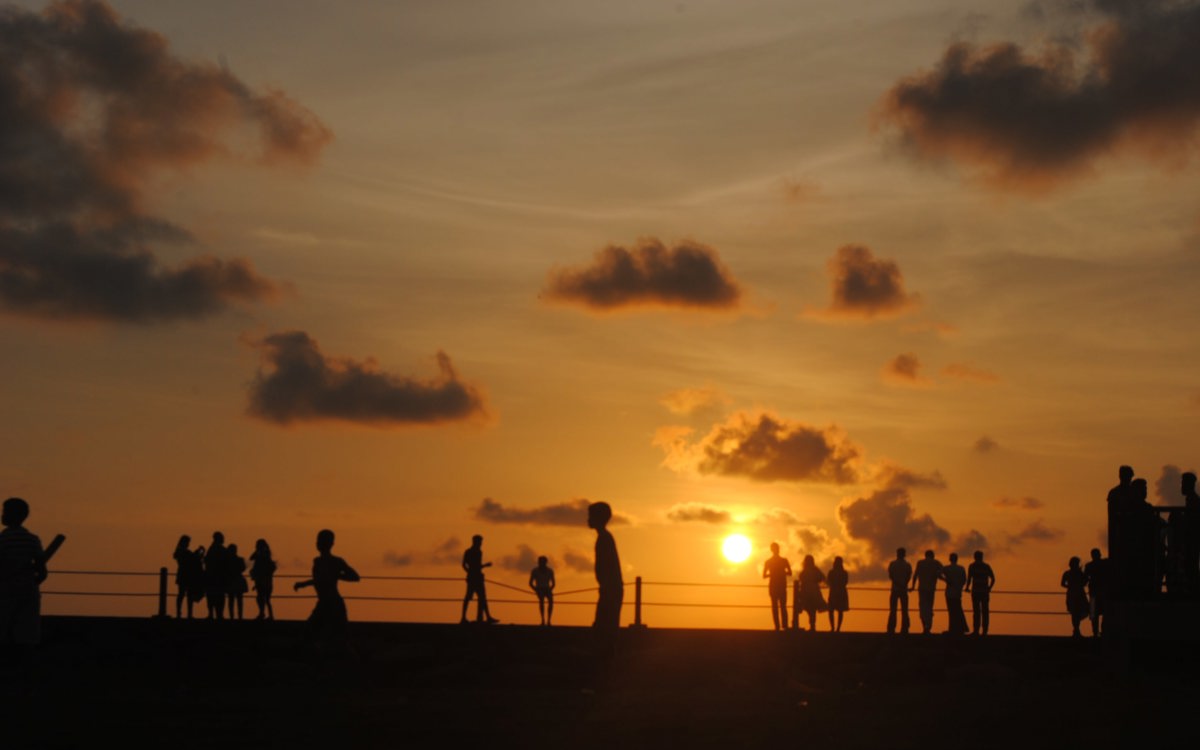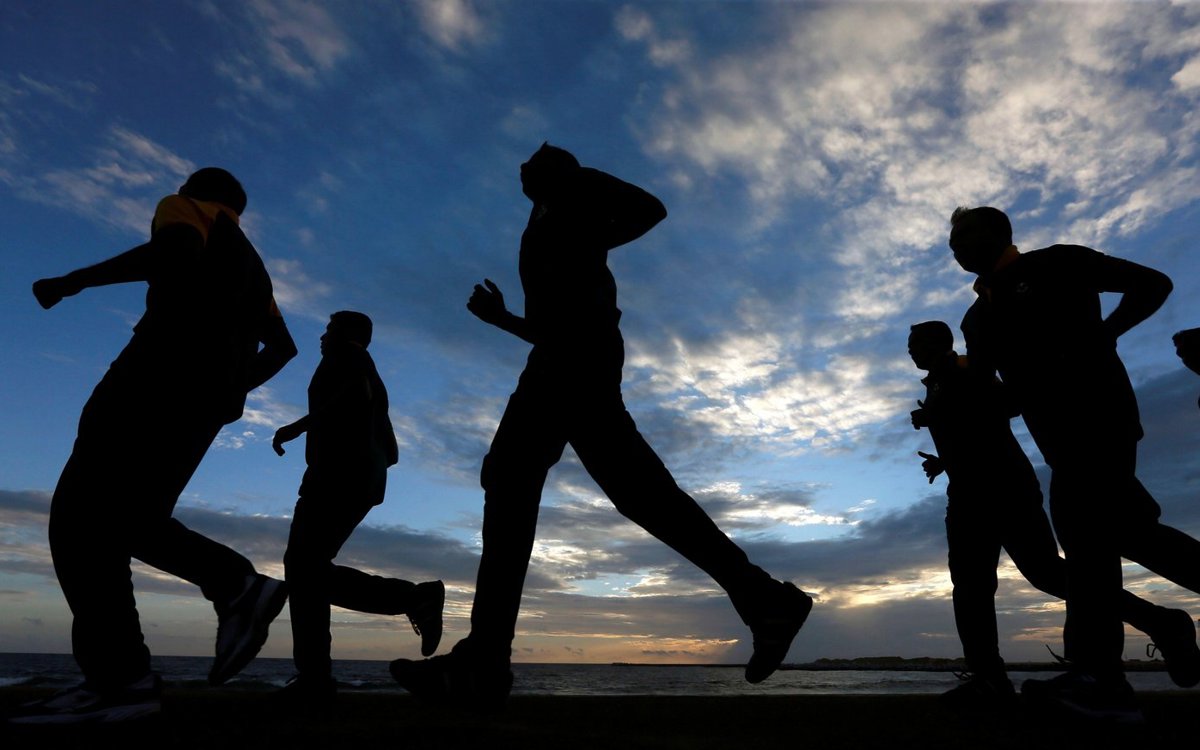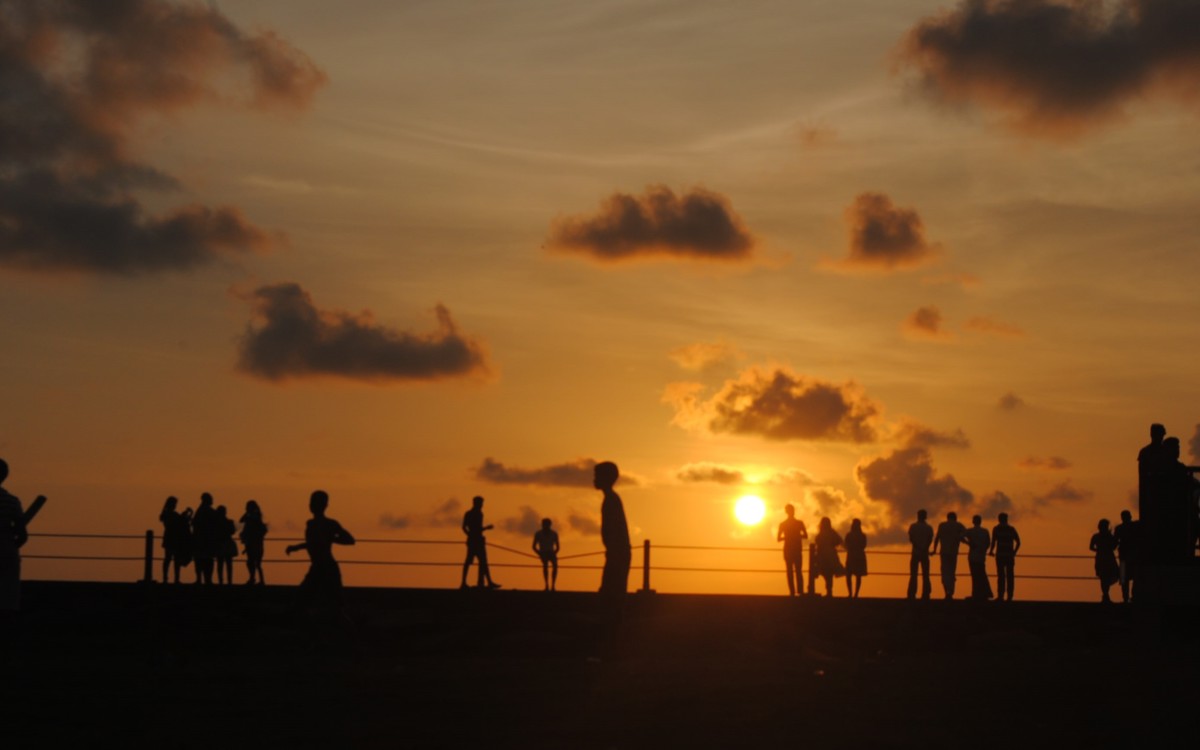How a community of joggers in Sri Lanka helped create a hub of peaceful coexistence. By Anton Piyarathne, Open University of Sri Lanka

Since gaining independence from the British in 1948, Sri Lanka has struggled to create a framework for peaceful living for its three main ethnic groups: Tamils, Muslims and Sinhalas. For decades, the country has been fractured by ethnoreligious tensions and conflict that multiple governments have failed to resolve. Local and foreign experts seeking to deliver reform rarely pay heed to local traditions and lifestyles. Yet within Sri Lanka exist heterogenous communities that have withstood ongoing provocation from ethnonationalist and political corners to find their own common ground, beyond the miracles of politicians. But how have they achieved this – and how did jogging come into it?
Incompatible partners?
Those of us who live in a divided society often hear people mutter: ‘we cannot live with them – those people are incompatible with us’. This claim is mostly uttered when the prospect of sharing space with those perceived to be ethnoreligious ‘others’ make another group anxious. Although this view of different ethnoreligious groups as ‘incompatible partners’ can appear essentially primordial – ‘hardwired’ into our psyches – it is, in fact, a recent construction: a colonial invention with postcolonial rejuvenation through electoral politics.
This gradual and systematic construction of rigid ethnoreligious categories begun with the colonial construction of ethno-racial groups. In the first in a series of divisive moves by the ruling elites to consolidate their political base, the Ceylon Citizenship Act of 1948 denied citizenship to Indian Tamils, leaving more than 700,000 people, about 11% of the population, disenfranchised and stateless. This was reinforced by the continuation of this political strategy in postcolonial regimes – including state-backed ethnic riots – in which this view of different groups as ‘incompatible partners’ became increasingly entrenched.
It was against this background, and as a researcher in anthropology, that I came to learn about Crow Island: a multi-ethnoreligious community of people who are very much active in their social lives, live as one group, and have managed to un-link divisive politics from their everyday social lives. Most remarkable is that this community found its roots in a very ordinary, everyday activity – one seemingly a million miles from the machinations of politics: jogging.
To truly understand how the community of Crow Island managed this peaceful coexistence, I immersed myself within it, forming very close relationships with 16 families – five Muslim, six Tamil, and five Sinhala – and interviewing many more. I took part in important events, political meetings, carnivals, and more. And most importantly, I became a daily jogger myself. So, what did I learn?

Welcome to Crow Island
Crow Island is identified in Sinhala as Kāka Dūwa or Kākadūpatha, and in Tamil as Kākatheewu, meaning ‘island with crows’ – a reference to the black crows often seen around Colombo. It is a small island village surrounded by a two-kilometre-long canal separating it from the mainland and connecting the Kelani Ganga to the Indian Ocean. In the island’s 700 housing units live around 3,500 families from a variety of ethnic and religious backgrounds. Reflecting this variety, the island is home to a pansala (Buddhist temple), a kovil or koil (Hindu temple), a mosque, and a catholic church.
Crow island is naturally gifted with the most beautiful beach in Colombo North, stretching from the Modara kovil to the mouth of Kelani Ganga, where it opens to the sea. The Modara kovil is a complex of Hindu temples dedicated to various gods and goddesses of the Hindu pantheon. Both Sinhala and Tamil devotees visit the Kāli kovil there. Buddhist-Sinhalas go there to seek the guidance of the goddesses to deal with offenders in a society where law and order is seen to be deteriorating.
When many Sinhala youth were killed or disappeared through state-sponsored counter anti-riot groups and military deployment in the late 1980s, their mothers visited this temple in search of solace. During the post-war period, Tamil parents whose children encountered the same fate came too. Many islanders worship at the kovil, from which they access the beach.
At this beach, I found many Crow Islanders walking or jogging together, often in groups of a multi-ethnic and religious mix. These jogging sessions happened at informally agreed hours every morning and every evening. Many are ‘regulars’ – indeed many of the joggers I interviewed told me they had used the beach in this way for ten years or more.
Of course, the desire for daily exercise is a highly rational one. Like most of us, Crow Islanders want to improve their physical and mental health and appearance. And yet their interactions were not limited to physical exercise. As well as jogging in mixed groups, it was common to see Sinhala, Tamil, and Muslim joggers, men and women, smile and greet each other, usually in English, saying ‘good morning’, ‘good evening’, ‘how are you?’. For these supposedly ‘incompatible partners’, jogging was a way to meet friends, share family news, receive advice, and discuss politics, the economy, and the 1001 other things that form part of everyday exchange.
From jogging to a community hub
In 2005, the joggers built on this trust and understanding to create a formal body: the Beach Park Management Society, which today has around 200 members from different ethnoreligious backgrounds. The society is a neutral, non-ethnic, non-religious entity with inclusive governance. It has a constitution with clearly spelled-out objectives, activities, and a decision-making process agreed by all. This constitution symbolises a rational base, agreeable to many dwellers if not for all, for their interactions and lessens the risks of misunderstanding.
The objectives of the management society are the maintenance and improvement of the beach, the improved physical and mental health of its users, and enhanced interpersonal relationships and cooperation among them. Office bearers are appointed at annual general meetings, at which ethnoreligious background is immaterial – as is evident in the mix of presidents appointed since 2005. At the heart of its work is a shared mission to sustain a safe and harmonious physical and social space for all to share, use and visit. Of course, infrastructure is part of creating a welcoming, inclusive space, so the management society have arranged children’s parks, installed benches for people to relax upon, fixed lamp posts for lighting, provided garbage bins, a toilet block, and food shops, and set up an open stage for the island’s diverse functions.
Since then, the management society has extended its reach and influence to become a hub of the island community, and an umbrella organisation for its housing schemes and other associations.

Challenges
But Crow Island was not always a place of peace. Before the jogging community took control of the beach in 2005, it was considered a danger zone, notorious for criminal activities and unsuitable for families. In 1998, it was the scene of the brutal gang rape and murder of Indian citizen Rita John Manoharan, who was out walking with her husband.
Crow Island’s activities and access to the beach were later affected by the escalation of violence between government armed forces and the militant group, the Liberation Tigers of Tamil Eelam, also known as the Tamil Tigers. Colombo at this time became very vulnerable to bomb explosions and air attack by light aircraft, and a naval base was established close to where the mouth of the Kelani Ganga meets the sea in a bid to protect the city and its harbour.
These new security measures, and the presence of security forces, caused fear for the Island’s Tamil residents. But the beach management society were able to help quell these fears by brokering greater understanding between the two groups. They would play a similar role a few years later when the navy presence was withdrawn from the beach, causing some residents to fear that it might become a haven for criminal activity. Here, the management society again intervened, establishing a police post in their office and working closely with the police to keep the beach and its users safe.
Commongrounds
This small island village is a tale of the survival of commongrounds: how a liveable, inclusive social space can exist, despite the continued exploitation of ethnoreligious divides for political gain. Through the understanding reached through daily jogging and a common need to maintain physical and mental health, the Crow Island joggers created a formal body which has now become a space that unites them all and supports their varied needs. The society has become a hub of social networks and support, helping all island dwellers to create a sense of community while looking after the common and individual needs of the residents.
In countries marked by conflict, these commongrounds are rarely a settled state, but a continuing field of struggle. Yet there is arguably much politics can learn from the everyday interactions on the sands of Crow Island.
Professor Anton Piyarathne is Head of the Department of Social Studies at the Open University of Sri Lanka.
Images: Sunset on Crow Island by Naushadnaznin via Wikimedia, licensed under CC BY-SA 4.0. Group of joggers in Colombo by Reuters / Alamy.
All content published by The ACU Review is copyright of the Association of Commonwealth Universities or its licensors and may not be reproduced without written permission from the Association of Commonwealth Universities. Please contact review@acu.ac.uk with enquiries.
How do conflict, crisis, and loss affect a community's mental health? Read more in The Long Shadow by Sri Lankan psychiatrist and professor Daya Somasundaram in The ACU Review's public mental health issue
